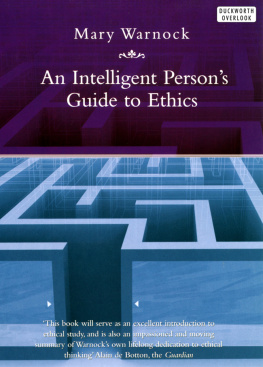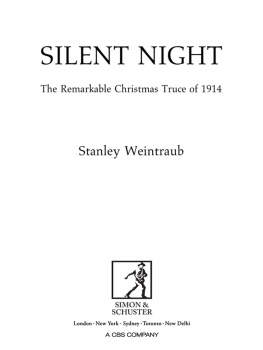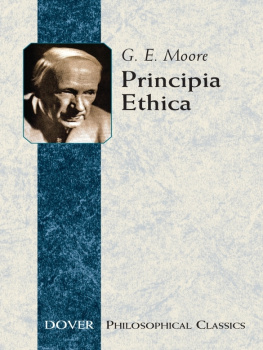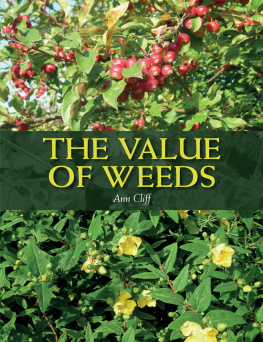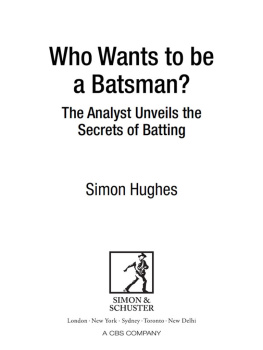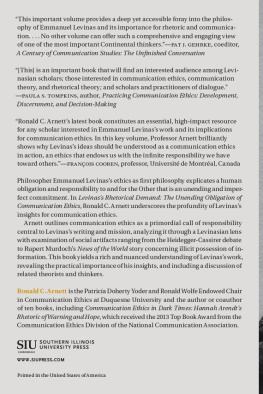Warnock - An Intelligent Persons Guide to Ethics
Here you can read online Warnock - An Intelligent Persons Guide to Ethics full text of the book (entire story) in english for free. Download pdf and epub, get meaning, cover and reviews about this ebook. City: London, year: 2006, publisher: Gerald Duckworth & Co, genre: Religion. Description of the work, (preface) as well as reviews are available. Best literature library LitArk.com created for fans of good reading and offers a wide selection of genres:
Romance novel
Science fiction
Adventure
Detective
Science
History
Home and family
Prose
Art
Politics
Computer
Non-fiction
Religion
Business
Children
Humor
Choose a favorite category and find really read worthwhile books. Enjoy immersion in the world of imagination, feel the emotions of the characters or learn something new for yourself, make an fascinating discovery.
An Intelligent Persons Guide to Ethics: summary, description and annotation
We offer to read an annotation, description, summary or preface (depends on what the author of the book "An Intelligent Persons Guide to Ethics" wrote himself). If you haven't found the necessary information about the book — write in the comments, we will try to find it.
Warnock: author's other books
Who wrote An Intelligent Persons Guide to Ethics? Find out the surname, the name of the author of the book and a list of all author's works by series.
An Intelligent Persons Guide to Ethics — read online for free the complete book (whole text) full work
Below is the text of the book, divided by pages. System saving the place of the last page read, allows you to conveniently read the book "An Intelligent Persons Guide to Ethics" online for free, without having to search again every time where you left off. Put a bookmark, and you can go to the page where you finished reading at any time.
Font size:
Interval:
Bookmark:

Mary Warnock is a philosopher. She has been fellow and tutor in philosophy at St Hughs College, Oxford; headmistress of Oxford High School; and Mistress of Girton College, Cambridge. She sits as an independent life peer in the House of Lords, and published Mary Warnock, A Memoir People & Places with Duckworth.
What the critics said:
The chief value of this book [is that] it does not present final answers to every moral dilemma. How could it?
What it does, rather, is show what it is like to think through moral questions with care, seriousness and an honest determination not to trivialise or simplify the horribly complicated issues they raise. In that sense, even if one disagreed with every moral opinion expressed in it, it would remain one of the best guides to ethics available.
Ray Monk, Sunday Telegraph
It is hard to believe that Mary Warnocks humane, lucid, honest and personal voice will not be attractive to anyone interested in the questions she discusses The point of a book like this is to stimulate discussion in a clear-headed and serious way; in this it has plainly succeeded.
Garrett Cullity, Times Literary Supplement
Warnocks new book admirably fulfils the brief of its title. This book fearlessly tackles a host of the favourite topics of pub bores. This book will serve as an excellent introduction to ethical study, and is also an impassioned and moving summary of Warnocks own lifelong dedication to ethical thinking.
Alain de Botton, Guardian
This admirable book fully lives up to its title, though it is perhaps more like an actual work of ethics than a guide to them. This is a wise, earnest, moving book, rather Victorian in its way, which shows that goodness is not just for prigs. No wonder the blurb calls it controversial. It must certainly raise eyebrows among the enlightened.
Robert Grant, The Times
Her views are well argued and forcefully expressed. She does full justice to the complexity of the subject, exposes the sophistry of many widely held views, tackles the big issues, and is unafraid to draw controversial conclusions. Doctors and nurses confronted with ethical dilemmas can learn much from this book.
Paul Crichton, British Medical Journal
Mary Warnock is probably the most famous philosopher in Britain.
Julian Baggini, The Philosophers Magazine
A lucid, unpretentious, sympathetic, civilised and thoroughly moral guide to intelligent ethical thinking, saying clearly what it says, neither mumbling nor haranguing.
Timothy McDermott, The Tablet
This is an open, clear, forthright book which encourages the reader to actively engage both with the general argument for and against the true and the good, and particular moral issues.
Peter J. Cole, Relate News
A thought-provoking book from a very wise woman.
Colin McCall, The Freethinker
An Intelligent Persons
Guide to Ethics
An Intelligent Persons
Guide to Ethics
Mary Warnock

Duckworth Overlook
This eBook edition 2013
This edition first published in the UK and US in 2004
First published in 1998 by
Duckworth Overlook
LONDON
30 Calvin Street
London E1 6NW
Tel: 020 7490 730
www.ducknet.co.uk
NEW YORK
The Overlook Press
141 Wooster Street
New York, NY 10012
1998 by Mary Warnock
The right of Mary Warnock to be identified as the author of the work has been asserted by her in accordance with the Copyright, Designs and Patents Act 1988.
All rights reserved. No part of this publication may be reproduced, stored in a retrieval system, or transmitted, in any form or by any means, electronic, mechanical, photocopying, recording or otherwise, without the prior permission of the publisher.
A CIP catalogue record for this book is available from the British Library and the Library of Congress
ISBNs
Paperback: 9780715635308
Mobipocket: 9780715646144
ePub: 9780715646151
Library PDF: 9780715646168
Contents
Introduction
A guide to ethics might be thought to be a kind of handbook on how to behave properly, like a guide to etiquette, or the Highway Code. Useful though such a book might be, it is not possible to write it. Ethics is a complicated matter. It is partly a matter of general principles, or even rules, like those of manners; but largely a matter of judgement and decision, of reasoning and sentiment, of having the right feeling at the right time, and every time is different. Above all it is a matter of trying to be a particular sort of person. And though ethics (or moral philosophy, as I prefer to call it), like the rest of philosophy, has been secularised, it is almost impossible to think about the origins and development of morality itself without thinking about its interconnections with religion. My own background is a small illustration of this.
My mother, though not pious, and disliking conventional piety, had had a very pious background, in that her grandmother, a German, had married into another German family that had converted to Christianity from Judaism. Religion was serious. My mother took church-going for granted, and having been a public schoolmasters wife (my father died before I was born), she also took for granted not just Sunday attendance, but bells summoning one to chapel every day. The liturgy was something I grew up with, and cathedral services were a source of endless pleasure and fascination. I went to an exceptionally religious school, St Swithuns, in Winchester, first by day, then as a boarder, where it was assumed that the true purpose of school was to make us good. The school motto was Caritas Humilitas Sinceritas; and the adolescence of myself and my friends was engaged largely with the contemplation of the last of these virtues. We endlessly examined ourselves and one another to find out whether we had really meant what we said or were only showing off; whether we really liked the things we professed to like, despised those things we claimed to, or whether these sentiments too were insincere. Though we may often have behaved badly, there is no doubt that we wanted to be good. I did not realise how important a fact this was until much later. But I do remember one day at school, just before I left, coming to a sudden realisation that nothing was or could ever be truly intolerable except the recognition that one had behaved badly in some serious, non-trivial matter.
When I went to Oxford the moral pressure and the religious atmosphere lifted. While I was reading Classical Honour Moderations almost the only pressure I was under was the pressure to work, to try to improve the lamentable standard of my girls school Latin and Greek and try to justify the scholarship which I had won, I knew, entirely by pretending to be brighter than I was, and getting away with it. It was 1942 when I started as an undergraduate, and so there was a wartime assumption of collective righteousness, of being on the right side, strengthened in my case by my friendship with Elisabeth de Gaulle, the Generals daughter, who was reading history in my year at college. The atmosphere was not so much moralistic as heroic.
After Oxford, having completed the first half of my degree course, and starting when I was just twenty, I taught for two years at a more relaxed girls school than mine had been, Sherborne School for Girls. But the horrors of the Holocaust became generally known at this time, and I reflected for the first time that humans have a great deal in common: I could not be sure that I did not have instincts as detestable as those of the Nazis, nor that I would have had the clarity of vision or the strength of character to resist these instincts, had I been a German at the time. I remember a particularly awful insight, that I, though I knew myself to be a good class teacher, was capable of being a bully, and tormenting a child if she irritated me, or seemed generally contemptible. The purpose of morality, I thought, must surely be to make one constantly alert to such temptations.
Font size:
Interval:
Bookmark:
Similar books «An Intelligent Persons Guide to Ethics»
Look at similar books to An Intelligent Persons Guide to Ethics. We have selected literature similar in name and meaning in the hope of providing readers with more options to find new, interesting, not yet read works.
Discussion, reviews of the book An Intelligent Persons Guide to Ethics and just readers' own opinions. Leave your comments, write what you think about the work, its meaning or the main characters. Specify what exactly you liked and what you didn't like, and why you think so.

